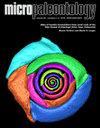Middle Triassic calcareous algae and microproblematica from south China
IF 1.6
4区 地球科学
Q3 PALEONTOLOGY
引用次数: 1
Abstract
The Yangtze carbonate platform (Southern China) recorded a long sedimentary evolution from Neoproterozoic to the basal Upper Triassic. During the Early and Middle Triassic, this platform was dominated by shallow-water carbonates. In various sectors of the platform, the Middle Triassic (Anisian-Ladinian) succession contain abundant assemblages of benthic foraminifera and calcareous algae. Following a previous paper about the Middle Triassic dasycladalean algae from SW Guizhou Province, the present study describes algae and microproblematic organisms from three sections: Honyan, Longtou and Guanling. Some dasycladalean algae are well known from the Alpine-Dinaric domain: Diplopora annulatissima, D. annulata, Euteutloporella triasina, Macroporella dinarica, Oligoporella minutula, O. pilosa pilosa, Poncetella hexaster and Pseudodiplopora proba. However, the dasycladalean association is dominated by species belonging to the genus Kantia, including K. cf. dolomitica and K. cf. comelicana. New Kantia species (K. intusannulata n. sp., K. granieri n. sp., K. muxinanii n. sp.) are characterized by the presence of intusannulation, a feature unknown from the Kantia species in the Alpine domain. The dasycladalean association also contains new species of the genus Mizzia and specimens belonging to the organo-genus Acicularia and/or Terquemella. Besides, rare specimens of "Solenopora" and Rivularia-type cyanobacteria are also present. The algal association is accompanied by microproblematic organisms including Tubiphytes sp., Zorniella obscura, Plexoramea cerebriformis, Ladinella porata, and Baccanella floriformis. Anisian-Ladinian foraminifera complete the micropaleontological spectrum of the sections studied. The most important are Meandrospira dinarica, Endotriadella wirzi, Paleolituonella meridionalis, and Turriglomina mesotriasica. The microfossils from the Middle Triassic Yangtze carbonate platform of south China belong to the Eastern Tethys province. Some of these species are also present in the Western Tethys (Alpine Domain). The new species presented in this study are absent from the Alpine Domain and probably represent endemic species for the Eastern Tethys.中国南方中三叠世钙质藻类和微问题藻
扬子碳酸盐岩台地经历了从新元古代到基底上三叠统的漫长沉积演化过程。早、中三叠世,该台地以浅水碳酸盐岩为主。中三叠世(安尼西亚-拉丁期)的演替中,台地各部分均含有丰富的底栖有孔虫和钙质藻类组合。在前人对黔西南地区中三叠世水藻的研究基础上,本文对红岩、龙头和关岭三个剖面的水藻和微问题生物进行了描述。在高山-迪亚纳域,一些双环藻是众所周知的:环藻双环藻、环藻双环藻、triaseuteutloporella diarica大圆藻、minutula寡圆藻、O. pilosa pilosa、Poncetella hexaster和Pseudodiplopora proba。然而,dasycladalean关联主要是属于Kantia属的物种,包括k.c.b olomitica和k.c.c omelicana。新的Kantia种(K. intusannulata n. sp, K. granieri n. sp, K. muxinanii n. sp)的特征是存在套环,这是高山地区的Kantia种所没有的特征。dasycladalean类群还包括Mizzia属的新种和器官属Acicularia和/或Terquemella的标本。此外,还发现了罕见的“螺线菌”和河鼠型蓝藻。藻类的结合伴随着微问题生物,包括管状菌、隐Zorniella obscura、脑状Plexoramea、porata Ladinella和Baccanella floriformis。阿尼西亚-拉丁期有孔虫完成了所研究剖面的微古生物学谱。其中最主要的是二甲螺旋体、威氏内三胞菌、经向古奥利托菌和中三角锥虫。中国南方中三叠统扬子碳酸盐岩台地的微化石属于特提斯省东部。其中一些物种也存在于西特提斯(阿尔卑斯地区)。本研究发现的新种在阿尔卑斯地区是不存在的,可能是东特提斯地区的特有种。
本文章由计算机程序翻译,如有差异,请以英文原文为准。
求助全文
约1分钟内获得全文
求助全文
来源期刊

Micropaleontology
地学-古生物学
CiteScore
3.20
自引率
6.70%
发文量
18
审稿时长
>12 weeks
期刊介绍:
The Journal of Micropalaeontology (JM) is an established international journal covering all aspects of microfossils and their application to both applied studies and basic research. In particular we welcome submissions relating to microfossils and their application to palaeoceanography, palaeoclimatology, palaeobiology, evolution, taxonomy, environmental change and molecular phylogeny. Owned by The Micropalaeontological Society, the scope of the journal is broad, demonstrating the application of microfossils to solving broad geoscience issues.
 求助内容:
求助内容: 应助结果提醒方式:
应助结果提醒方式:


